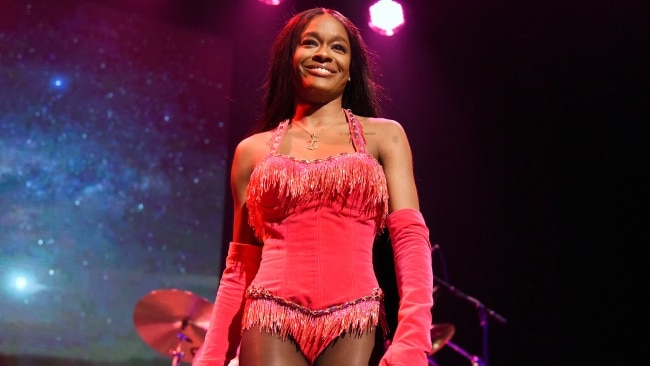'Bitterly disappointing': Crown cast responds to cruelty criticism
The cast of the forthcoming Netflix royal drama have defended the series amid criticism that it blurs the line between history and fiction.
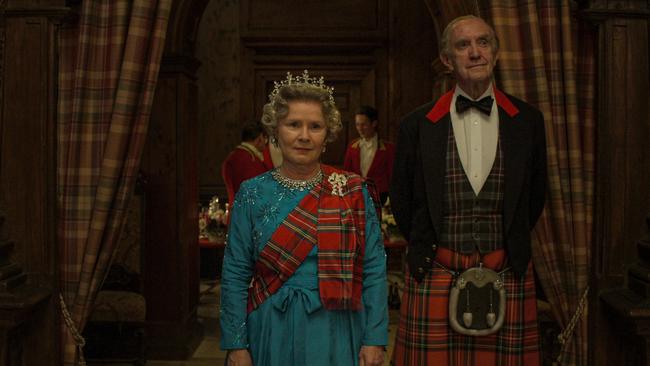
The cast of the forthcoming Netflix royal drama have defended the series amid criticism that it blurs the line between history and fiction.
Jonathan Pryce, who plays Prince Philip in the forthcoming season of The Crown, expressed that he is “bitterly disappointed” by his “fellow artistes” that have publicly maligned the show.
The likes of Dame Judi Dench and former UK Prime Minister John Major have expressed reservations with the Netflix show for blurring the lines of fiction and history.
Pryce, who has taken over the role of Prince Philip from Tobias Menzies and Matt Smith, is responding to comments made by Judi Dench in The Times where she said that the series was “cruelly unjust to the individuals and damaging to the institution they represent.”
She called for a disclaimer to be played at the beginning of each episode, stating that it is a “fictionalised drama.”
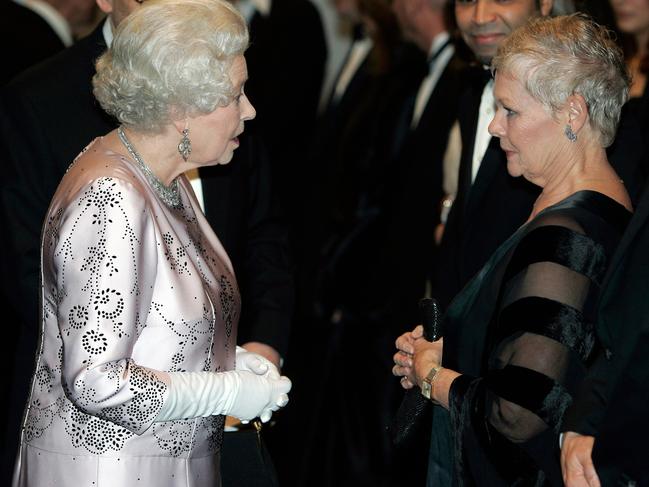
“The vast majority of people know it’s a drama,” said Pryce. “They’ve been watching it for four seasons.”
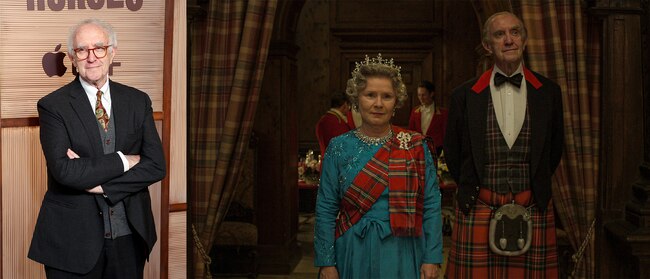
Echoing a view shared by cast members Imelda Staunton and Lesley Manville, who will play Queen Elizabeth II and Princess Margaret in Season 5, Pryce said that the criticism being leveled at The Crown likely “came about because of an enhanced sensitivity because of the passing of the Queen.”
Manville, who has been handed the baton by Helena Bonham Carter and Vanessa Kirby, said that The Crown explores “what goes on behind closed doors.”
“Yes, there are some events depicted that we all know about, but it’s behind closed doors; what they’re thinking, what they’re feeling? [The show's writer] Peter Morgan can only create and invent,” she added. “We don’t know about those intimate conversations so it has to be imagined what might have gone on.”
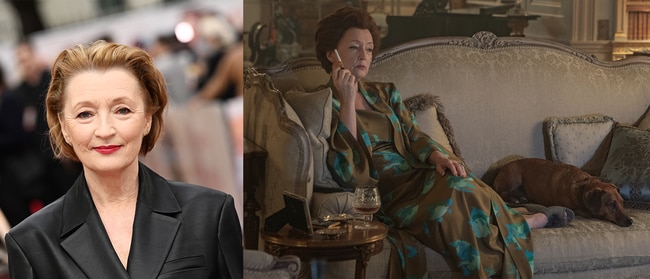
Manville emphasised that The Crown is not a documentary. “We are not making a documentary because we are dealing with people whose lives are incredibly well documented.
“It would be boring to do that,” she noted.
Imelda Staunton, who has taken over the role of Queen Elizabeth II after Olivia Coleman and Claire Foy, acknowledged that it’s “understandable” that there is an air of apprehension surrounding the forthcoming series. Adding that the “endings are still a bit raw” following the death of the Queen.
Though Staunton is adamant that the show is not “undignified,” adding “we think it’s honest and true and respectful.”
She notes that the Queen has been a fascination for the show’s writer Peter Morgan since his 2006, Helen Mirren-led film, The Queen. “He obviously adores the family in many ways, and he’ll show both sides of the characters, for good or for worse.”
“He’ll show them and make no judgement, he’ll leave that up to the audience.”
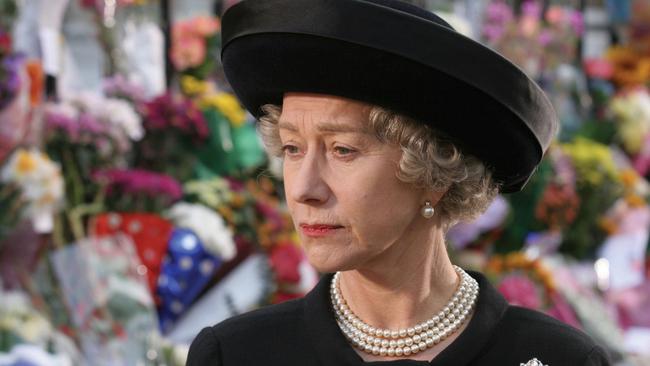
Manville defended criticism that the storylines of seasons 5 and 6 are ‘intrusive’. The penultimate and final seasons will explore the fallout of three of her children’s marriage breakdowns, most significantly that of Prince Charles (Dominic West) and Diana (Elizabeth Debicki.) It will also track the deaths of Diana, Margaret, and the Queen Mother.
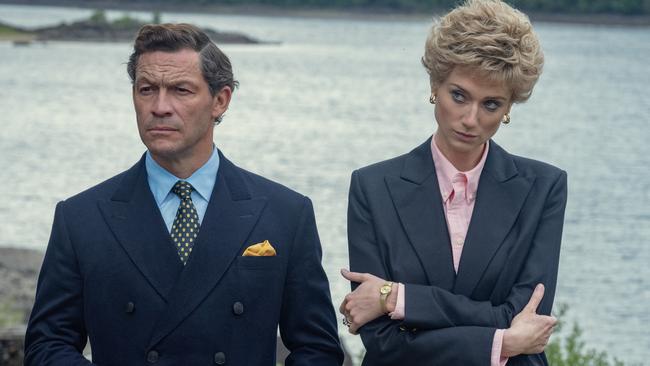
“I wouldn’t be involved with something that I felt was crossing the line,” Manville said. I don’t think the series does that at all.”
In the series, Peter Morgan explores the “imagined frustrations that Phillip had with his wife”, often depicting their relationship as tense and the Duke of Edinburgh as a testy character.
‘I don’t think he was mean. No more than anybody else’s husband,’ Pryce said of Phillip. “I think what you see is this long relationship where Phillip has had an image that he is always prepared to move forward, and questioning, and questing.”
Pryce believes that Phillip “has enormous admiration” for The Queen, but perhaps, “would have liked to be a bit more changeable.”
“As you know, in any long relationship, you’re going to have a quibble about things now and then.”
Staunton, meanwhile, aired her admiration for The Queen, and her unwavering dedication to religion. “I’m discovering, with the research, how important her faith was to her, that that gave her courage and strength,” she said. “I think it must have given her an ability not to be thrown by what was thrown at her; that she could remain constant and to be her own person.”
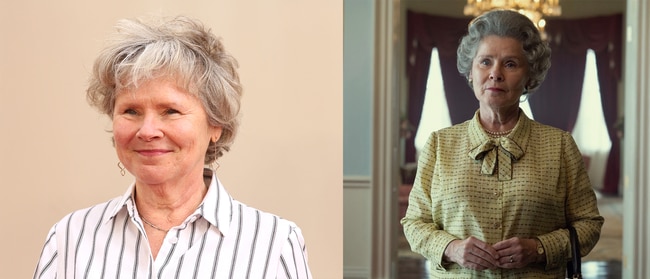
She adds: Here we were, celebrating, when she died, a woman with her own face; who let her hair go gray, and never had to change with the times and impress anyone: ’I am just what you need me to be, which is – just here. Just being here. I’m doing my very best.’ That’s what I learned to love about her,” Staunton said. “She wasn’t going to do soul-searching.”
Staunton mused that the Queen loved the sides of Philip that were “irascible” and “slightly grumpy.”
“She let him be his own person and she had to be her own person because she was the queen. She had a huge responsibility,” she said.

